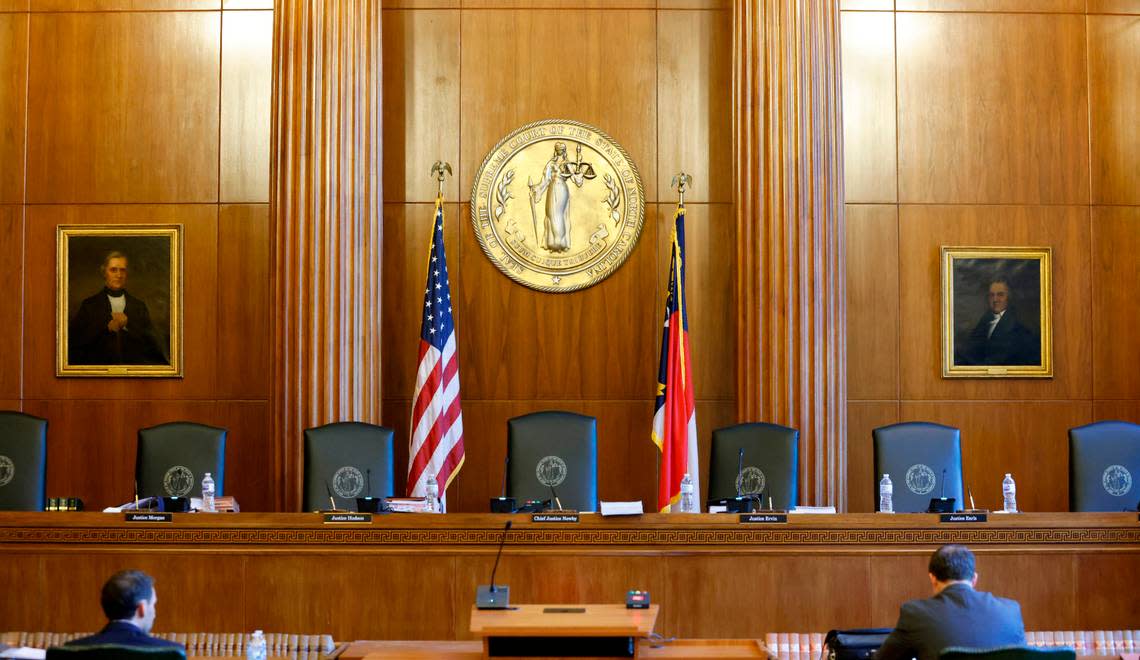Can voters sue McCrory lawyers for false fraud claims? NC Supreme Court to hear case

- Oops!Something went wrong.Please try again later.
Can North Carolina voters who say they were falsely accused of voter fraud sue the Republican-affiliated group that brought the claims?
That’s what the state Supreme Court will consider this week after hearing arguments in Bouvier v. Porter, a case that began in 2016 when former Gov. Pat McCrory’s supporters accused several voters of fraud as he attempted to contest his loss to Gov. Roy Cooper.
“I think it’s important to draw some lines in the sand about what’s permissible in North Carolina elections,” Jeff Loperfido, the lawyer for the voters, said. “This is a nonpartisan issue — any party in a close race has the incentive to do things like this, and voters are the ones who get trampled in the process.”
The defendants in the case, which include a law firm based in Washington, have argued that their statements were privileged, and they are therefore immune from being sued.
“Placing qualifications on privilege will sow doubt about whether a speaker will be immune, which will yield a harvest of self-censorship that will impinge the flow of relevant information to tribunals,” they argued in a court filing.
Speech in certain contexts, such as some judicial proceedings, is considered privileged — meaning the speaker cannot be sued for defamation even if the content of the speech is false.
The case is scheduled for oral arguments on Thursday morning.
Accusations of voting twice
McCrory himself is not being sued, but rather several of his supporters who accused voters, by name, of committing fraud in the wake of the 2016 gubernatorial election.
For nearly a month following the election, McCrory refused to concede. He formed a legal defense fund, which pursued election protests against allegedly ineligible voters.
The accusations, which included claims that voters had voted twice, were disproven and the voters sued for defamation.
Louis M. Bouvier Jr., one of the voters bringing the case, was accused of voting twice because his son has the same name and voted in a different state, Loperfido said.
“They are understandably pissed off about this whole thing,” Loperfido said. “I mean, they were wrongfully accused of double voting. They had local media showing up at their houses asking about it, coverage in the newspaper. They had to appear at county board hearings to defend themselves and try to figure out who’s accusing them of this stuff and where’s it all coming from. And very, very quickly, they realized that it was it was baseless.”
Headed for the NC Supreme Court
Though defendants argued they should be immune from the claims, the North Carolina Court of Appeals disagreed in 2021 when it ruled that the case could continue.
However, that ruling was blocked last year when the Supreme Court said it would take up the case.
Republicans dominate the court, which currently has only two Democratic justices. Both of them, Allison Riggs and Anita Earls, have recused themselves from the case because they previously represented the voters bringing the lawsuit.

